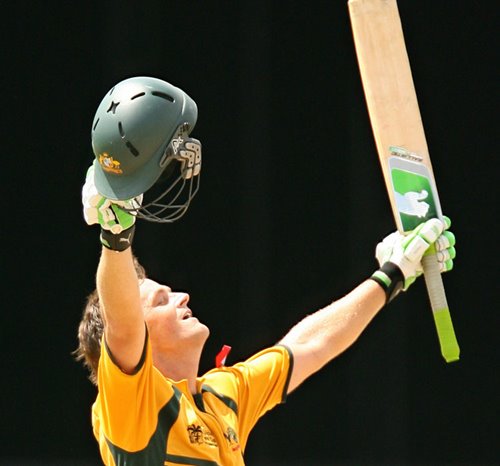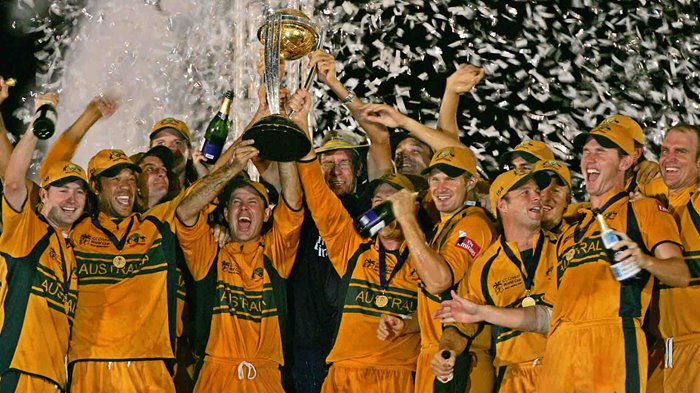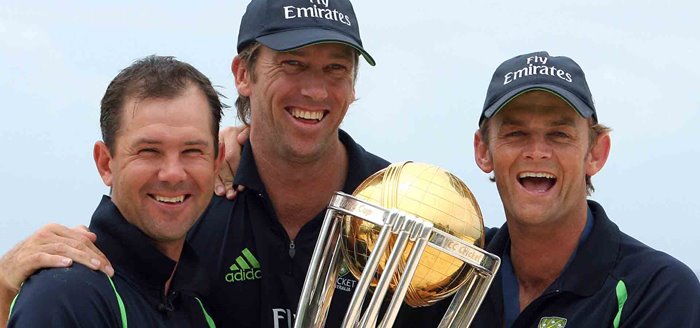The first World Cup held in the Caribbean saw another change to the format: 16 teams played in four groups of four, the top two qualifying for a ‘Super Eight’ group stage where the top four qualified for the semi-finals.
The ‘Super Eight’ group stage was won by the Australian team with Sri Lanka finishing second, and both won their respective semi-finals; Sri Lanka overcame New Zealand at Kingston while Australia won a one-sided semi-final against South Africa in St Lucia.
The final, held at the Bridgetown Oval in Barbados, was decimated by rain, which delayed the start of the match by two and three-quarter hours. When play started the match was reduced to 38 overs per side.
Australia won the toss and decided to bat, and Adam Gilchrist played one of the great one-day innings, scoring 149 from 104 balls. Holding a squash ball inside his glove – an unusual yet not illegal tactic - Gilchrist scored eight sixes, which at the time equalled the record for any World Cup innings.

Gilchrist’s score remains the highest in a final, and contributions from Hayden (38) and Ponting (37) propelled Australia to a total of 281 for 4. Lasith Malinga was the pick of the Sri Lankan bowlers with figures of 2 for 49, but for the second consecutive final Australia had posted an imposing total.
In reply, Sri Lanka suffered a poor start when opener Tharanga was caught by Gilchrist from the bowling of Nathan Bracken in the third over. Bracken was the only bowler in the entire match to complete a maiden.
Sanath Jayasuriya and Kumar Sangakkara both made half-centuries, but after they were both dismissed, rain returned and the players had to leave the field. When they resumed, on 149 for 3 from 24.5 overs, the new target set for Sri Lanka was 269 from 36 overs.
The target was too big for Sri Lanka to attain and they continued to fight despite losing wickets in the increasing darkness. When the Sri Lankan team were offered the light requiring 63 runs from 3 overs, they accepted it and Australia began to celebrate their fourth World Cup title and third in a row.

However, the match officials believed that the final three overs had to be bowled to constitute a result, despite the fact that the Duckworth-Lewis method enabled a result to stand after 20 overs. Thus, both sides went out to complete the last three overs and in failing light it was agreed that those overs were bowled by spinners, to alleviate safety concerns – which denied Player of the Tournament Glenn McGrath the chance to bowl the final over of his international career.
In the end Sri Lanka made a score of 215 for 8 and due to the Duckworth-Lewis method, Australia officially won the match by 53 runs, leaving captain Ponting, who alongside McGrath and Gilchrist were the three ever-presents in final victories from 1999-2007, to lift the trophy for the second successive tournament.
